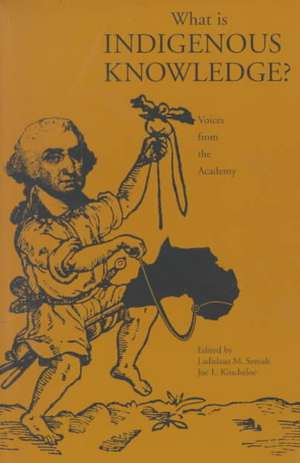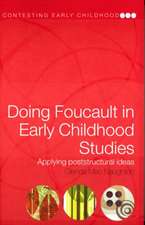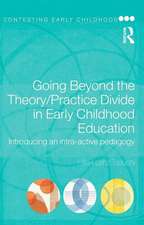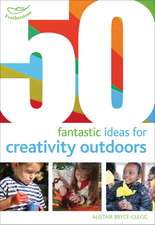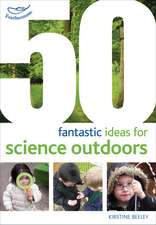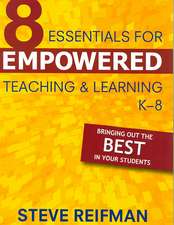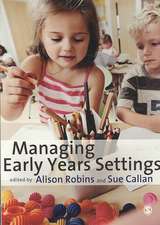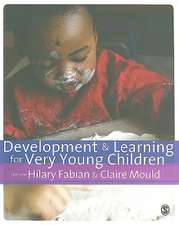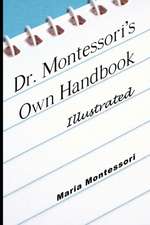What is Indigenous Knowledge?: Voices from the Academy: Indigenous Knowledge and Schooling
Autor Ladislaus M. Semali Editat de Joe L. Kincheloeen Limba Engleză Paperback – apr 1999
| Toate formatele și edițiile | Preț | Express |
|---|---|---|
| Paperback (1) | 472.28 lei 43-57 zile | |
| Taylor & Francis – apr 1999 | 472.28 lei 43-57 zile | |
| Hardback (1) | 1342.55 lei 43-57 zile | |
| Taylor & Francis – iul 1999 | 1342.55 lei 43-57 zile |
Preț: 472.28 lei
Preț vechi: 555.63 lei
-15% Nou
Puncte Express: 708
Preț estimativ în valută:
90.37€ • 94.59$ • 75.22£
90.37€ • 94.59$ • 75.22£
Carte tipărită la comandă
Livrare economică 31 martie-14 aprilie
Preluare comenzi: 021 569.72.76
Specificații
ISBN-13: 9780815334521
ISBN-10: 0815334524
Pagini: 398
Dimensiuni: 138 x 216 x 16 mm
Greutate: 0.46 kg
Ediția:New.
Editura: Taylor & Francis
Colecția Routledge
Seria Indigenous Knowledge and Schooling
Locul publicării:Oxford, United Kingdom
ISBN-10: 0815334524
Pagini: 398
Dimensiuni: 138 x 216 x 16 mm
Greutate: 0.46 kg
Ediția:New.
Editura: Taylor & Francis
Colecția Routledge
Seria Indigenous Knowledge and Schooling
Locul publicării:Oxford, United Kingdom
Notă biografică
Ladislaus M. Semali is Associate Professor of Education at the Pennsylvania State University. Originally from Tanzania, his major areas of research are language, media, and literacy education. He is currently the Director of the Interinstitutional Consortium for Indigenous Knowledge. He is author of Postliteracy in the Age of Democracy and co-edited Intermediality: The Teachers' Handbook of Critical Media Literacy. Joe L. Kincheloe teaches Pedagogy and Cultural Studies at the Pennsylvania State University. Currently he is Belle Zeller Visiting Chair of Public Policy and Administration at CUNY Brooklyn College. He is the author of numerous books, including Teachers as Researchers: Qualitative Paths to Empowerment and Toil and Trouble: Good Work, Smart Workers and the Integration of Academic and Vocational Education
Cuprins
Preface: Decolonizing Indigenous Knowledge--Donaldo Macedo Introduction: What is Indigenous Knowledge and Why Should We Study It?--Ladislaus M. Semali and Joe L. Kincheloe Indigenous Knowledge and Schooling: A Continnum Between Conflict and Dialogue--Mahia Maurial Indigenous Knowledge as a Component of the School Currriculum--June M. George Community as Classroom: (Re)Valuing Indigenous Literacy--Ladislaus M. Semali Science Education in Nonwestern Cultures: Towards a Theory of Collateral Learning--Olugbemiro J. Jegede Indigenous Knowledge, Indigenous Learning, Indigenous Research--Jill Abdullah and Ernie Stringer Indigenous Knowledge Systems-Ecological Literacy Through Initiation into People's Science--Madhu Suri Prakash Indigenous Knowledge and Ethnomathematics Approach in the Brazilian Landless People Education--Gelsa Knijnik Indigenous Music Education in Africa--Clemente K. Abrokwaa The Inseparable Link Between Intellectual and Spiritual Formation in Indigenous Knowledge and Education: A Case Study in Tanzania--R. Sambuli Mosha Indigenous Languages in the School Curriculum: What Happened to Kiswahili in Kenya?--Lucy Mule Indigenous Knowledge Systems for an Alternative Culture in Science: The Role of Nutritionists in Africa--Robert K. N. Mwadime Agricultural Extension Education and the Transfer of Knowledge in an Egyptian Oasis--Anne M. Parrish Indigenous People's Knowledge and Education: A Tool for Development--Rodney Reynar Local Knowledge Systems and Vocational Education in Developing Countries--Consuelo Quiroz Indigenous Knowledge, Historical Amnesia and Intellectual Authority: Deconstructing Hegemony and the Social and Political Implications of the Curricular Other--Frances V. Rains Indigenous Knowledge: An Interpretation of Views from Indigenous Peoples--Marcel Viergever About the Editors and Contributors Index
